|
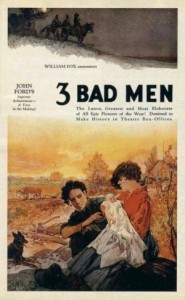
Synopsis:
In the 1800s, three bandits (Tom Santschi, J. Farrell MacDonald, and Frank Campeau) following a wagon train come to the aid of a young woman (Olive Borden) whose father has just been killed. Soon they decide she needs a suitable husband to care for her, and set their sights on a handsome young cowboy (George O’Brien).
|
|
Genres, Themes, Actors, and Directors:
- Immigrants and Immigration
- John Ford Films
- Silent Films
- Thieves and Criminals
- Westerns
Review:
Peary lists no less than 44 of prolific director John Ford’s films in his GFTFF; of these, three — Straight Shooting (1917), The Iron Horse (1924), and this title — are from the silent era, and will primarily be of interest to those curious to see how Ford’s talents developed over the years. Based on a novel by Herman Whitaker, Three Bad Men tells the semi-humorous tale of three petty bandits with hearts of gold, who are inexplicably drawn to caring for the lovely young fatherless woman they encounter along a wagon train. As noted by Mike Grost in his analysis of Ford’s films, there’s an interesting gay subtext in the bandits’ search for Borden’s perfect mate, as they check out numerous men, including one particularly fey dandy about whom they comment, “If a man’s heart is in the right place, it don’t matter what sex he belongs to.” (!)
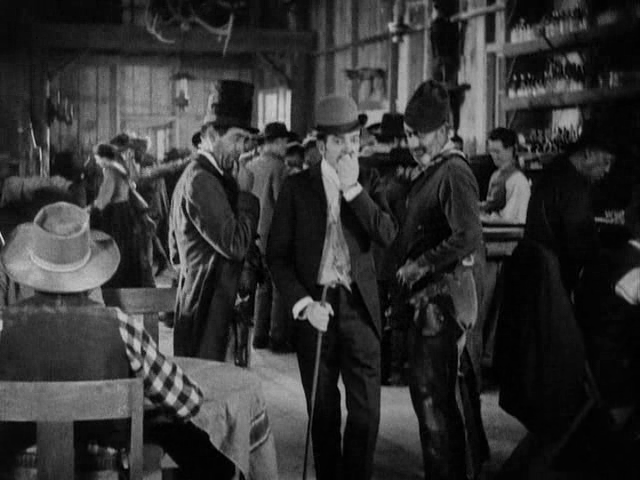
Meanwhile, Ford’s typical “male bonding” theme can also be seen in the bandits’ close friendship with one another. The second half of the film shifts away from humor towards adventure, as an exciting land grab takes place, and a subplot involving Santschi’s sister leads to a murderous manhunt. Throughout, Borden remains refreshingly sassy, O’Brien appropriately hunky:
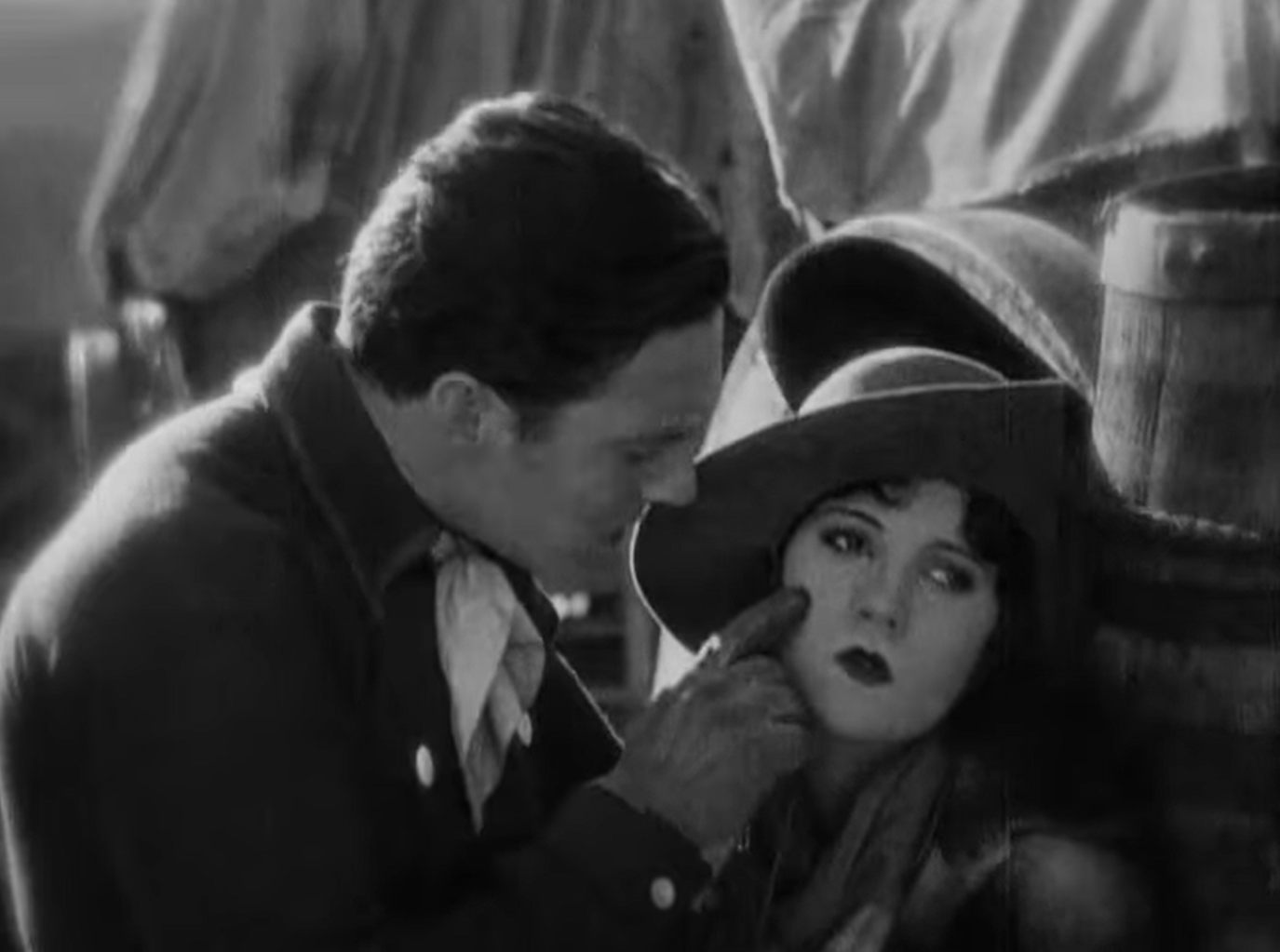
and Ford’s direction solid.
Note: Try to watch the 2007 version with Dana Kaproff’s multi-faceted score; it stands head-and-shoulders above most silent-era soundtracks.
Redeeming Qualities and Moments:
- Olive Borden as Lee
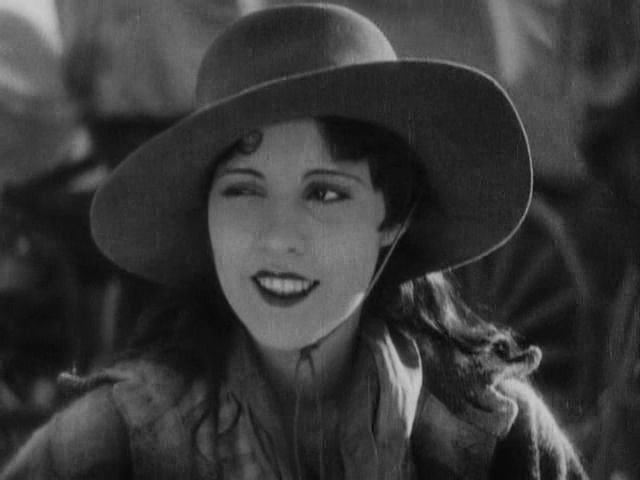
- The powerful land-grab sequence
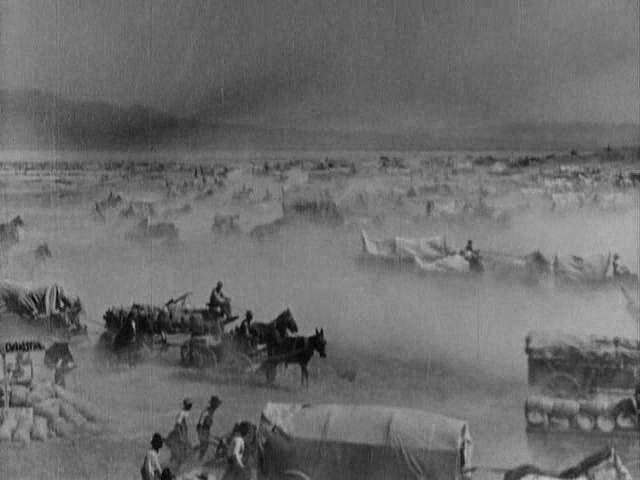
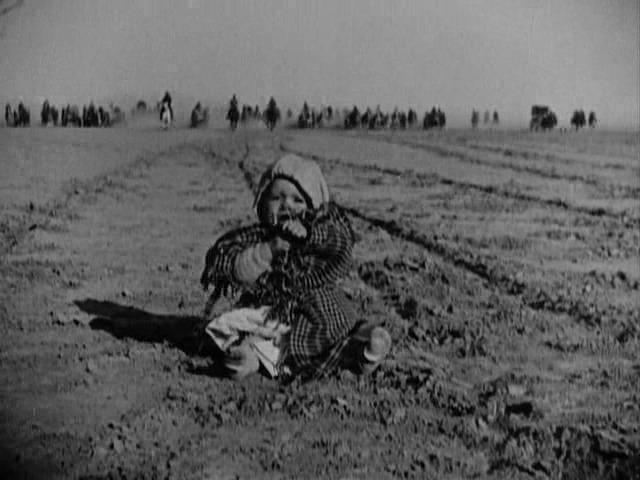
- Fine cinematography and direction
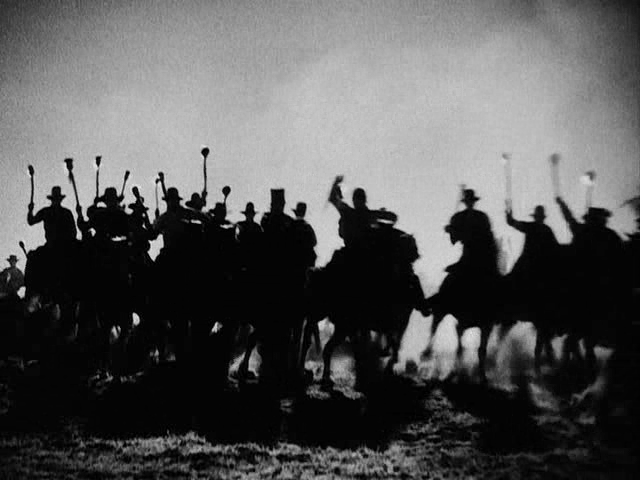

Must See?
No, though it’s certainly recommended for Ford fans.
Links:
|








One thought on “Three Bad Men (1926)”
A once-must…for reasons actually brought out in the latter part of the assessment. As well, not only is Ford’s direction “solid”, but it’s astonishing to see just how developed his style already is this early in his career (esp. the overall visual look and the way Ford handles the larger sequences – whether one involves quite a few people at a time or something massive such as the burning of the church or the riveting land grab). This is one very well-made film!
And it does have the refreshing angle of the ‘bad men’ being genuinely charmed by Borden (who does strike just the right feminine balance here). One just doesn’t expect these guys to turn, as they do, into three big brothers – though the film does lay out what makes this possible.
A particular surprise is O’Brien. His presence is an unusual one, carrying atypical star quality in an actor. He’s completely relaxed, natural and very appealing, with a rather expressive face.
I especially like the way the script slowly winds down, scene by scene, to its inevitable conclusion.
Ford’s films are often not shy about being sentimental (note how the three men are with each other in scenes close to the film’s end) – and the occasional slight gay subtext in this film doesn’t surprise. It’s been written in quite a few places that Ford was at least bisexual. (Though, no, I don’t have the final word on that.)
This time out, I did watch the version with Kaproff’s score. Very impressive work; very attentive in its support of the film.